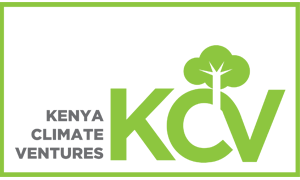A settlement camp in a remote area of northwest Kenya is abuzz with economic activity – and a signal of the investable opportunities to better serve refugees in East Africa and elsewhere.
Kakuma, one of the world’s largest refugee camps, shelters nearly 200,000 refugees and displaced people from Somalia, South Sudan and other countries, at least for now.
Globally, more than 100 million people have been displaced from their homes, and their numbers continue to swell. Such global migration has created large, underserved markets of consumers and a pipeline of micro-, small- and medium-sized businesses seeking to serve them.
The Kenyan government has been pressing U.N. officials to close Kakuma, even as an updated Refugee Act, passed in 2021, promotes new opportunities and rights for refugees and asylum-seekers in Kenya.
In the meantime, the more than 2,000 small and mid-sized businesses operating in the vast camp and surrounding areas generate tens of millions of dollars in annual sales and employ tens of thousands. The businesses include trade and light manufacturing, small-crop agriculture and food production, fashion and cosmetics, and the provision of essential services such as health, education and housing.
Despite the economic vibrancy, entrepreneurs and business owners are underserved by banking and other financial institutions. Seizing the opportunity are impact investors like Kenya Climate Ventures and Acumen, which are focusing a portion of their investments in the region on companies led by, employing, or serving displaced people.
“A field of practice is taking root in East Africa,” says John Kluge, a founder of Refugee Investment Network, which together with Acumen is convening investors, companies and other development actors at this week’s Refugee Lens Investing Summit in Nairobi.
To mobilize more capital, RIN will be releasing refugee lens investment reports on Kenya and Ethiopia (to add to an earlier report on Uganda) that document the policy and investment environments across the region. Acumen will showcase a pipeline of “refugee lens” companies.
Sustainable solutions
“When you invest with a refugee lens, you are providing an opportunity for refugees to participate in decision-making of their own economic growth through entrepreneurship,” says Victor Ndiege of Kenya Climate Ventures, which has made three investments in companies led by or serving refugees located in the Kakuma camp.
All told, the fund has invested more than $4 million in flexible debt and equity into more than 20 climate-smart ventures in underserved Kenyan markets. Capital invested in refugee markets “is pioneering and de-risking” and helps enterprises to access more financing, Ndiege tells ImpactAlpha.
The refugee-lens ventures meet basic needs with sustainable solutions. Rafode provides retail and micro-asset financing to 4,500 clients for products like energy efficient cookstoves and solar lighting.Hydroponics Africa produces and distributes hydroponic farming systems in the water stressed region for refugees and host community members to grow and sell food efficiently. And Sunken Limited opened a manufacturing facility to fabricate and distribute energy efficient stoves and solar irrigation systems.
The fund’s three investments in refugee solutions helped attract more than double that amount from International Finance Corp.,the Kakuma Kalobeyei Challenge Fund, a $25 million grant program to support refugee-lens companies, other investors.
Accelerating impact
Acumen this year graduated 14 ventures in Ethiopia, Kenya, and Uganda that serve displaced people with support from IKEA Foundation and the Swiss Agency for Development and Coordination. Patient capital, Acumen’s Jacqueline Novogratz tells ImpactAlpha, c
Acumen noticed past investments in East Africa, in companies like Gulu Agricultural Development Co., and EthioChicken, had had outsized, if unintentional, impact on displaced populations.
Moving forward, a refugee lens will be intentional, Acumen’s Lindsay Camacho told ImpactAlpha. Acumen East Africa is formally expanding its “inclusion” lens to include forcibly displaced populations, she says. Acumen overall has invested $146 million in 155 companies. Read also:KCV Signs Loan Agreement with Shammah Rown Group To Finance Seedling Production Technology
Five top-performing refugee-centric ventures will receive awards at this week’s summit in Nairobi. These include agro-processing social enterprise Turaco Valley Foods; Pelere Group, a shea-butter cosmetics manufacturer; and Patapia, which helps women refugees start businesses.
Also among the top performers are Kakuma Ventures, founded and led by Congolese refugee Innocent Tshilombo, which operates inside the Kakuma camp installing wifi for both refugees and host communities.
And One Lamp, which provides solar energy solutions and solar refrigeration to households in Uganda. Founder Derrick Hosea Opio sees the country’s 1.5 million refugees as a large target market.
“This presents an opportunity to grow the business,” Opiotold Acumen, “to serve refugees as a unique customer with unique needs.”
First published by:ImpactAlpha












